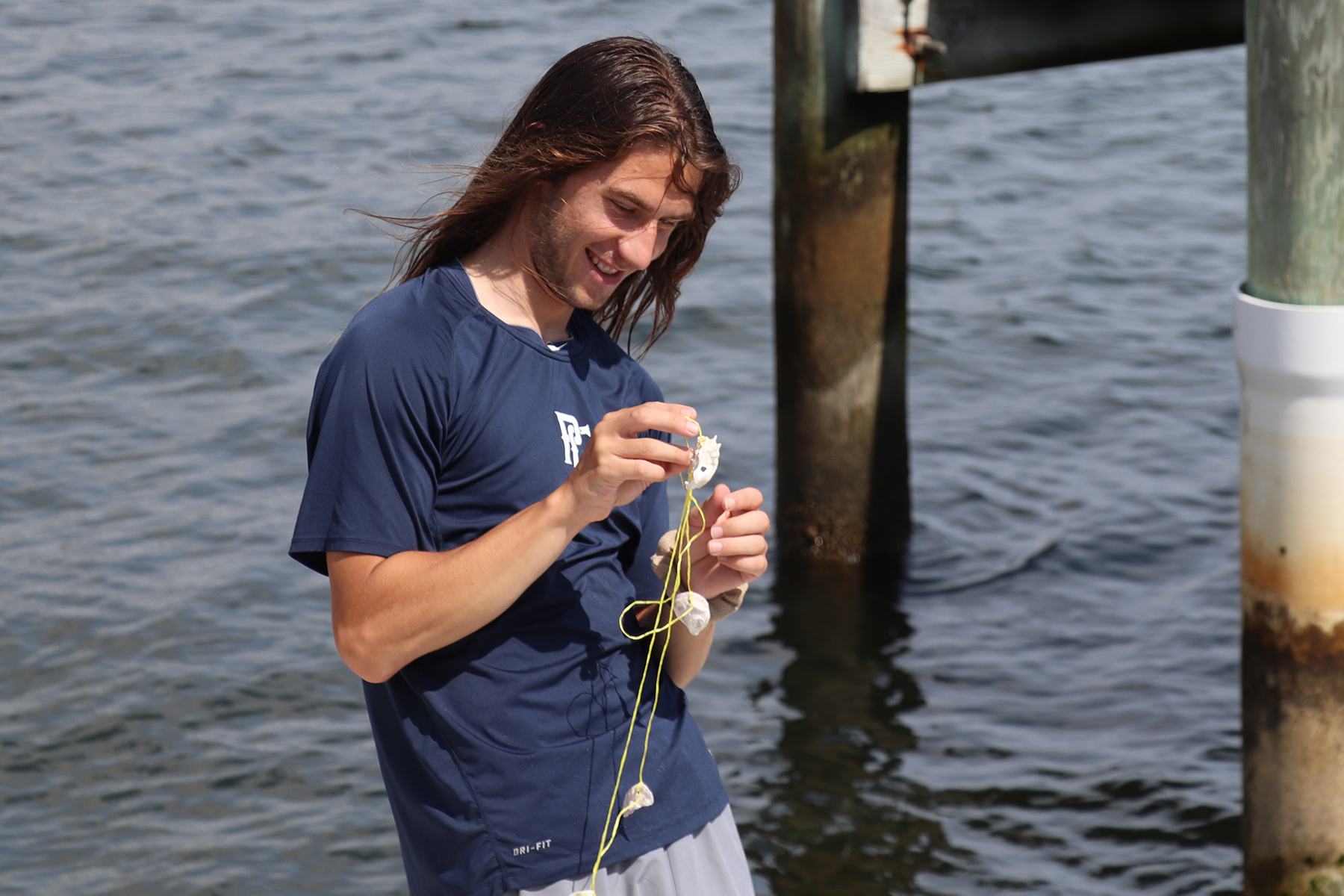Since July, junior Tyler Daly has been soaking in opportunity from his work as a research assistant for Dr. Christine Ramsay, associate professor of life sciences. Part of a grant-funded project (by Southeastern New England Educational and Charitable Foundation) to investigate the impact of marine invasive species in local waters, Tyler’s research focuses on bryozoans, “marine fouling” organisms that have made their way to the Thames River from warmer southern waters. Marine fouling organisms attach themselves to underwater objects, such as ropes, boats and other structures, and cause damage.
Tyler, a marine biology major, is gaining practical experience and broadening his understanding of what being a scientist means. He secured the position of research assistant by following up on a request for one from Dr. Ramsay to her marine biology students in January 2021.
“I am elated to be doing this work. I love the fact that I am being exposed to exactly what research and possibly a job in this field would look like.”
His work averages about five to eight hours per week, and he splits his time between collecting specimens from around the Mitchell dock and then conducting experiments in the lab in Bingham Hall.
“The ultimate goal of this research is to determine temperature tolerances for the bryozoans to live and then predict where they might spread, based on the temperatures of the coastal areas around us. An invasive species like this outcompetes native species for space.”
When the water in the river gets too cold for the bryozoans to live on the dock, the experiments will end and the collected data and images will continue to be analyzed throughout the winter months. Dr. Ramsay and Tyler will use that information to write a paper that will be published and presented at a professional scientific conference.
Tyler said that some of the challenges that he has encountered in his work as a research assistant have prepared him well for future work.
“Data analysis was a big challenge. It’s grueling and monotonous, but it’s one of the things that I love because it’s a big part of the sciences. I have gotten used to it, and it’s very practical for me to know. Being a research assistant has also helped me communicate better with a ‘boss.’ At first I wasn’t sure how to talk with Dr. Ramsay and have a rapport, but now I am much more comfortable communicating with her and with others.”
Looking forward to a future filled with science, Tyler also recognizes being in the moment on the Mitchell dock.
“This experience is really helpful in terms of understanding what work in academic or research settings would be like. There are a lot of possibilities. I love science and figuring out how things work, the math behind the interactions of everything, the governing force in the world, and which things make what move. I also love that my job is to go to the dock and do science work on the water. I get to watch the ferry or even a submarine come in or go out as I am pulling bryozoans off a rope for an experiment that I am about to set up. That is very exciting for me!”
